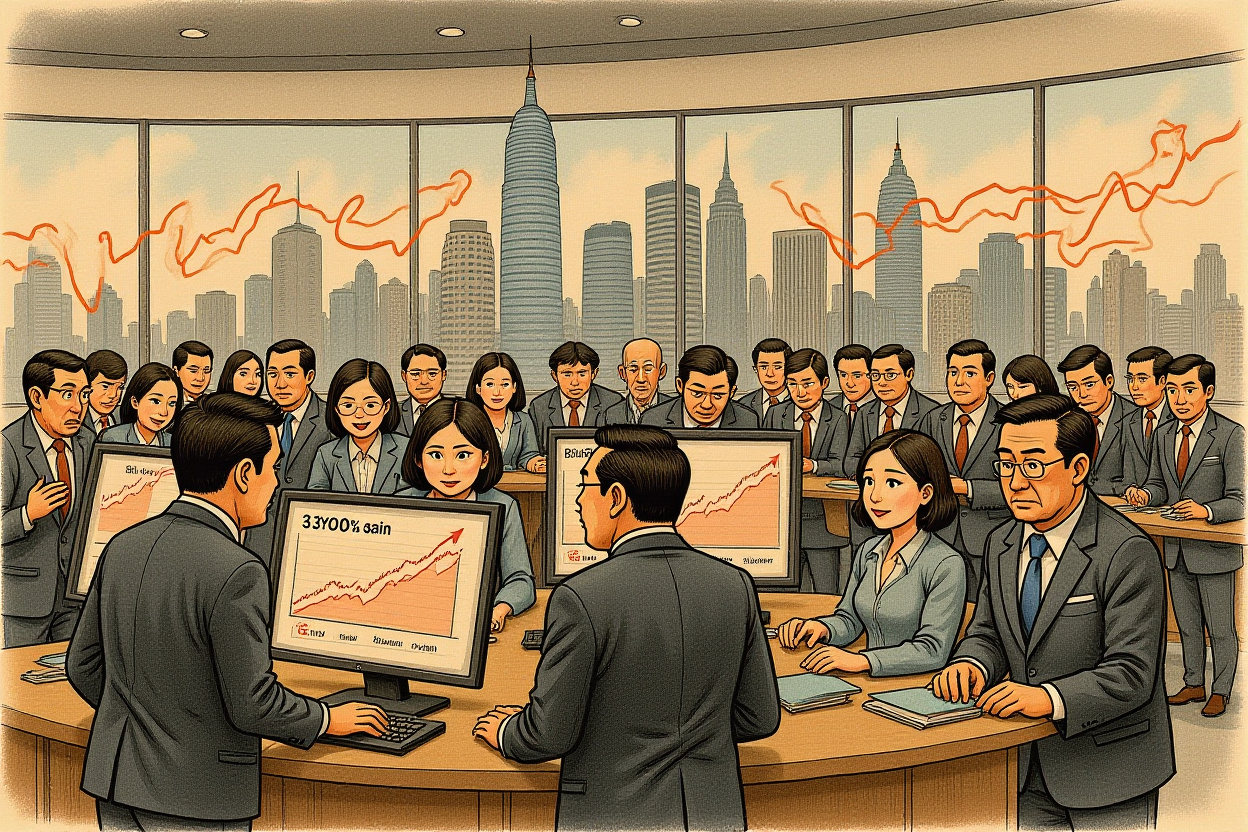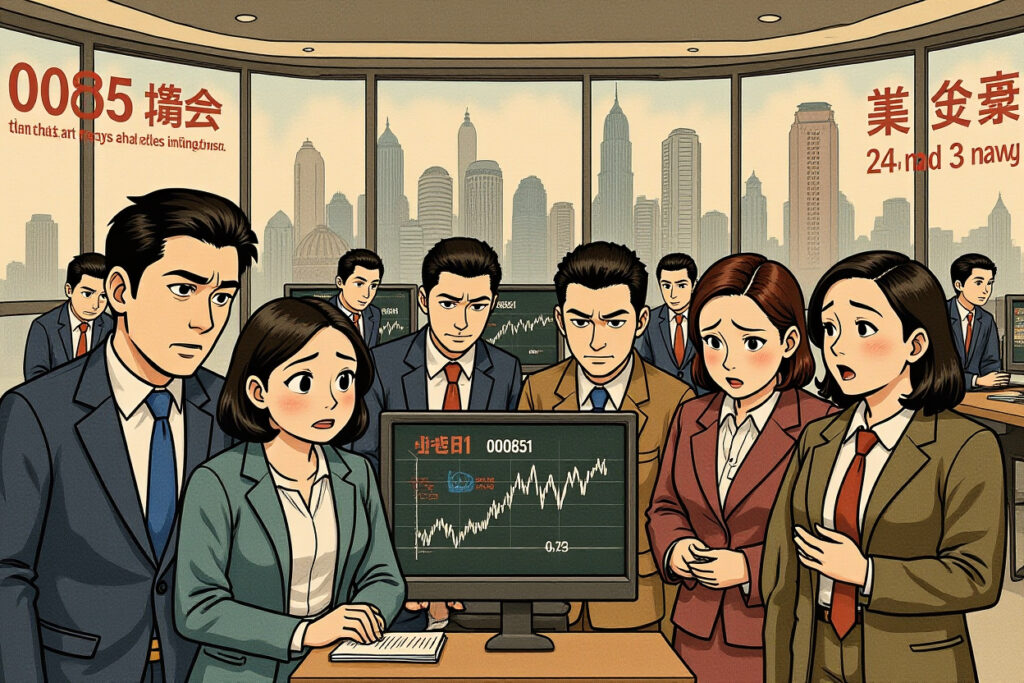Executive Summary
Warren Buffett’s Berkshire Hathaway has completely exited its position in BYD (比亚迪), the Chinese electric vehicle giant, realizing an extraordinary return of approximately 3,890% over the 14-year holding period. This move signals a significant shift in the investment landscape for Chinese technology and green energy stocks.
- Berkshire Hathaway sold its remaining BYD Hong Kong shares, ending a landmark investment that began in 2008
- The divestment represents one of Buffett’s most successful Asian investments, with an estimated gain of over $7 billion
- Market analysts are divided on whether this signals concerns about Chinese EV valuations or simply profit-taking
- The move comes amid increasing regulatory scrutiny of China’s technology sector and growing competition in the EV space
- BYD’s fundamentals remain strong, with record production numbers and expanding global market share
The Unexpected Exit
Warren Buffett’s sudden divestment of BYD shares has sent shockwaves through Asian markets, particularly affecting the electric vehicle sector. The move represents a complete reversal from Berkshire Hathaway’s long-term position that had become symbolic of confidence in China’s technological advancement.
Hong Kong exchange filings revealed that Berkshire Hathaway sold 1.33 million BYD H-shares on July 11, reducing its stake to zero. This final transaction followed months of gradual selling that began in August 2022, when Berkshire first trimmed its position after maintaining it unchanged for nearly 14 years.
Historical Context of the Investment
Berkshire Hathaway initially acquired 225 million shares of BYD in September 2008 for approximately $230 million, representing a 7.73% stake in the company. At the time, BYD was primarily known as a battery manufacturer with ambitious plans to enter the automotive sector.
The investment came during the global financial crisis when Chinese equities were significantly undervalued. Buffett’s endorsement through MidAmerican Energy Holdings (now Berkshire Hathaway Energy) provided immediate credibility to the then-little-known Chinese manufacturer.
Financial Performance Analysis
The staggering 3,890% return on Warren Buffett’s BYD investment represents one of the most successful plays in emerging markets history. This performance significantly outpaced major indices and comparable automotive investments during the same period.
BYD’s transformation from a niche battery maker to the world’s largest electric vehicle manufacturer by sales volume drove this exceptional returns. The company’s vertical integration strategy, controlling everything from batteries to semiconductors, created unprecedented economies of scale in the EV sector.
Comparative Returns Analysis
When compared to other major investments in the automotive sector, Buffett’s BYD stake dramatically outperformed. Tesla delivered approximately 1,800% returns during the same period, while traditional automakers like GM and Ford generated modest single-digit annual returns.
The investment also outperformed Berkshire’s other major holdings. Apple, Berkshire’s largest holding, generated approximately 600% returns since 2016, while Coca-Cola has delivered steady but modest returns over the same period as the BYD holding.
Market Impact and Reactions
The announcement of Warren Buffett’s sudden divestment of BYD triggered immediate market reactions across multiple asset classes. BYD’s Hong Kong-listed shares fell 11.9% following the initial disclosure, wiping approximately $8 billion from the company’s market capitalization.
The sell-off spread to other Chinese EV stocks, with Li Auto (理想汽车) declining 7.6% and Xpeng (小鹏汽车) falling 6.8% on the same day. The broader Hang Seng Index dropped 2.3% as international investors reassessed Chinese technology exposures.
Institutional Investor Responses
Major institutional holders have responded differently to Buffett’s exit. Some long-term investors have interpreted the move as a valuation signal, reducing their own positions in Chinese EV manufacturers. Others see this as a unique circumstance unrelated to BYD’s fundamental prospects.
Goldman Sachs maintained its buy rating on BYD, citing strong order books and expanding market share in Southeast Asia and Europe. Meanwhile, Morgan Stanley downgraded the stock to equal-weight, noting increased competition and potential margin pressures.
Strategic Implications for Chinese Equities
Warren Buffett’s sudden divestment of BYD raises important questions about the investment outlook for Chinese equities among international investors. The move comes amid ongoing geopolitical tensions and regulatory uncertainties affecting foreign investment in Chinese technology companies.
Some analysts interpret the exit as a signal about valuation levels in the Chinese EV sector, which has seen extraordinary growth but faces increasing competition from both domestic and international manufacturers. Price wars in China’s automotive market have intensified, putting pressure on industry profitability.
Regulatory Environment Considerations
China’s regulatory landscape for technology companies has evolved significantly since Berkshire’s initial investment. Increased scrutiny from both Chinese regulators and international authorities has created additional complexity for foreign investors.
The Cybersecurity Law of 2017 and subsequent regulations have imposed new compliance requirements on technology companies. Additionally, tensions between the US and China have resulted in investment restrictions affecting certain Chinese securities.
Future Outlook for BYD and EV Sector
Despite Warren Buffett’s sudden divestment of BYD, the company’s fundamental outlook remains strong. BYD continues to lead global EV sales, with record deliveries of 1.86 million vehicles in 2022 and expanding production capacity across multiple continents.
The company’s vertical integration strategy provides significant cost advantages, particularly in battery production where BYD remains a leader in lithium iron phosphate (LFP) technology. This advantage becomes increasingly important as raw material costs fluctuate.
Global Expansion Strategy
BYD’s international expansion continues accelerating, with manufacturing facilities planned in Thailand, Brazil, and potentially Europe. The company has surpassed Tesla in several Asian markets and is making significant inroads in Latin America and the Middle East.
The company’s electric bus business has established strong positions in multiple international markets, providing a foundation for passenger vehicle expansion. Recent launches in Japan and Germany demonstrate BYD’s commitment to competing in established automotive markets.
Investment Strategy Lessons
Warren Buffett’s sudden divestment of BYD offers several important lessons for international investors in Chinese equities. The 14-year holding period demonstrates the value of patience in emerging markets investments, while the exit timing shows the importance of disciplined profit-taking.
The investment also highlights the potential of identifying companies at the intersection of multiple growth trends. BYD benefited from China’s economic rise, the global shift to electric vehicles, and technological advancement in battery storage simultaneously.
Portfolio Construction Implications
For institutional investors, the BYD case study underscores the importance of position sizing in high-conviction emerging markets investments. Berkshire’s initial $230 million investment represented a small portion of its portfolio but generated outsized returns due to extraordinary growth.
The exit also demonstrates the challenge of maintaining positions as companies grow from small caps to large caps. Liquidity constraints often force gradual selling that can extend over many months, potentially affecting execution prices.
Moving Forward in Chinese Markets
Warren Buffett’s sudden divestment of BYD represents a significant moment for Chinese equity markets but should not be interpreted as a blanket statement on investment opportunities in China. The country continues to produce world-leading companies across multiple sectors, particularly in green technology and manufacturing.
International investors should focus on fundamental analysis while remaining aware of geopolitical and regulatory developments. Diversification across sectors and careful position sizing remain crucial for managing risk in emerging markets.
For those considering investments in Chinese equities, particularly in the rapidly evolving electric vehicle sector, thorough due diligence on competitive positioning, technological advantages, and management quality is essential. The BYD story demonstrates that extraordinary returns are possible but require both conviction and patience.
Monitor regulatory developments through official channels like the China Securities Regulatory Commission (中国证券监督管理委员会, CSRC) and consider consulting with local experts to navigate the complex investment landscape. The next generation of Chinese champions may already be emerging, waiting for discerning investors to identify them early.




